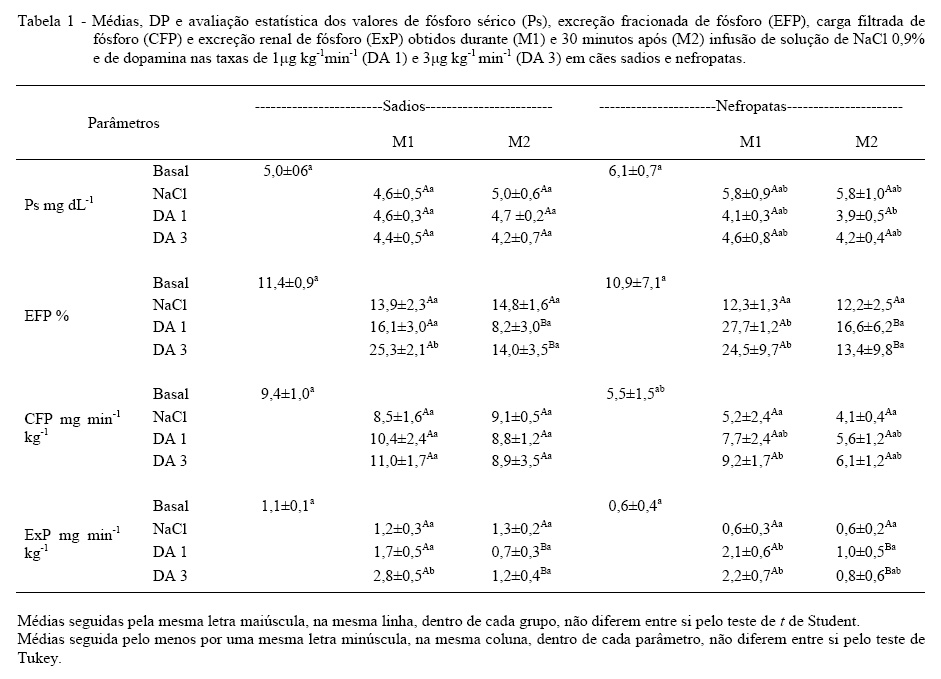The dopamine has a wide spectrum of action on the urinary system. Increases in glomerular filtration rate, renal blood flow, sodium and phosphate fractioned excretion are renal effects expected in healthy people. Thus, this study was conducted in order to test the hypothesis that the dopamine is efficient to increase the fractioned excretion of phosphorus in nephropathic dogs. Five healthy dogs and four dogs nephropathic, predominantly with tubule-interstitial illness were submitted to a solution control infusion (NaCl 0.9%) and to a dopamine solution in two different rates of infusion (1µg kg-1min-1 and 3µg kg-1min-1) and were assessed before, during, and 30 minutes after the infusion. The healthy dogs presented a significant increase (P≤0.05) in the fractioned excretion and renal excretion of phosphate during the infusion of 3µg kg-1min-1, however, the seric concentration remained without alterations during the treatment. The nephropathic dogs presented a significant increase (P≤0,05) in the fractioned excretion and renal excretion of phosphate, in the 1µg kg-1 min-1, and in the 3µg kg-1 min-1 doses. Moreover, after the infusion of 1µg kg-1 min-1, the seric concentration of phosphate presented a significant reduction. The results indicate that the dopamine in the doses of 1µg kg-1 min-1 and 3µg kg-1 min-1 can be included in the intensive therapy of nephropathic dogs to improve the phosphate homeostasis.
phosphaturia; dopamine; chronic renal failure

